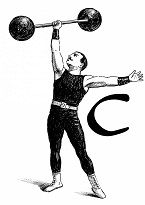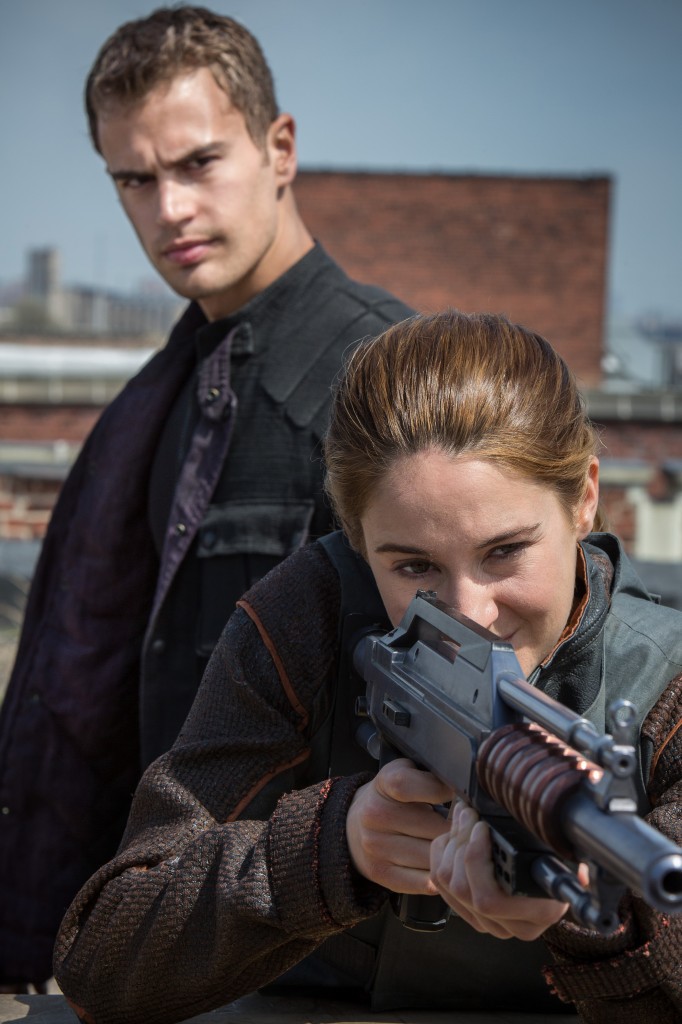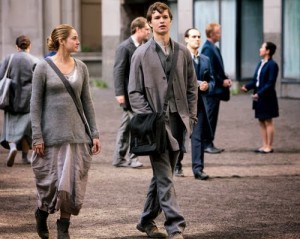The marketing campaign around Neil Burger’s “Divergent” – based on the book series of the same name by author Veronica Roth – has been substantial. That said, the movie hits rather pale, possibly uninspired in the wake of “The Hunger Games,” or perhaps due to audiences’ over stimulated appetite for dystopian teen dramas. Which is unfortunate. The acting in the film is effective, and the world that Burger has created authentic. However, like “The Hunger Games” “Divergent” suffers from two main flaws – too ambitious a run-time, and the seemingly impossible task of transferring so many thoughts and ideas from a novel into an engaging motion picture. The result is a fairly entertaining beginning and middle, but a rushed, confusing end.
“Divergent” focuses on Tris (Shailene Woodley, “The Spectacular Now“), who comes to a crossroads when she must choose the path for the rest of her life – to become a caregiver for society along with her family, or a protector of mankind, running with the Dauntless – the world’s brave protectors. Post-war, “Divergent’s” society is made up of five factions: Erudites (the thinkers), Dauntless (the warriors), Amity (the farmers), Candor (the truth), and Abnegation (the selfless). There’s also the rest of mankind who doesn’t fit into these groups, called “Factionless,” which are basically homeless people living under bridges. To belong to a faction is to have a home. Tris makes a choice that changes her life forever when she leaves her family of Abnegates at the ritualistic choosing ceremony for the brave Dauntless. However, there’s a catch – Tris learns there is another group in this society, Divergents, who don’t fit into any one category, which she may unwittingly be a member of.
The post-apocalyptic Chicago and surrounding wasteland that serves as the backdrop for “Divergent” is certainly interesting, with crumpled skyscrapers set around desperate times. The film’s cinematography and landscape has a sort of “I Am Legend” or “Elysium” type feel to it – that kind of post war world where things still function, but with an image of the future that seems startlingly-like our present. Simple clothes, humble hovels, and modest living encapsulate most of the film’s residents. And, unlike “The Hunger Games” those in elevated positions are not ostentatiously attired, but simply appear more well off than the rest.
Where “Divergent” shines is its first and second act, as it introduces us to this world, especially the relationship between Tris and her brother (Ansel Elgort), her mother (a reserved Ashley Judd), and her father (Tony Goldwyn). The bond it shows between she and her family is well done, as is their horror when she and her brother leave Abnegation for different factions of their choosing. However, the movie becomes less about the effect this has on her family, and more on Tris’ present as a Dauntless initiate after the movie leaves its opening act. While you get the impression that this was an integral part of the novel, showing less of Tris’ family and the rest of society by focusing on her newfound faction takes something away from the ambiance and connection “Divergent” the movie really needed.
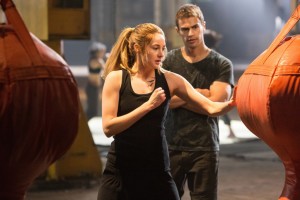 “Divergent” also suffers from the same plights as overambitious movies that attempt to fit a novel’s entire content in while still making an engaging motion picture. The training sequences of Tris’ initiation into the Dauntless are entertaining, and probably would have made a good movie on their own. However, as a result of its length – more than a third of the movie – several key characters are painted a bit to thin to bring the depth and explanation the movie needed. For instance, the film’s Dauntless hero “4” (Theo James) is given virtually no backstory, and exists almost solely as a love interest for Tris, though the two lack any kind of real chemistry. Likewise other characters, such as an adversary Peter (Miles Teller), or fellow Dauntless leader Eric (Jai Courtney), have so little defined motivation, that they become lost toward the movie’s conclusion. Eric’s arc is particularly confusing, and his involvement in the movie’s sequel-hungry ending, involving society’s hunting of Divergents, will leave audiences with many questions and little answers.
“Divergent” also suffers from the same plights as overambitious movies that attempt to fit a novel’s entire content in while still making an engaging motion picture. The training sequences of Tris’ initiation into the Dauntless are entertaining, and probably would have made a good movie on their own. However, as a result of its length – more than a third of the movie – several key characters are painted a bit to thin to bring the depth and explanation the movie needed. For instance, the film’s Dauntless hero “4” (Theo James) is given virtually no backstory, and exists almost solely as a love interest for Tris, though the two lack any kind of real chemistry. Likewise other characters, such as an adversary Peter (Miles Teller), or fellow Dauntless leader Eric (Jai Courtney), have so little defined motivation, that they become lost toward the movie’s conclusion. Eric’s arc is particularly confusing, and his involvement in the movie’s sequel-hungry ending, involving society’s hunting of Divergents, will leave audiences with many questions and little answers.
That’s not to say “Divergent” is without merit, as the acting in the film by all involved ranges from passable to excellent. While some minor characters such as Goldwyn and Judd – who have had impressive careers – are wasted, most of the main cast does an thorough job. Woodley is charmingly-likable as Tris, and, unlike criticism of Jennifer Lawrence’s portrayal of Katniss in “The Hunger Games” actually comes off as a scared teenager. Additionally, James does well with what he has to work with as the mysterious “4,” adding more depth to his character than the script probably allowed. Even Elgort, who plays Tris’ Erudite brother Caleb, builds a successfully strained relationship with Tris in the limited screen time given. The result pulls the movie up despite its cumbersome 139-minute run-time. Additional pearls, such as a spotlight on homelessness in society, as well as the importance of finding strength within yourself, add backbone to the film which, unfortunately, leaves no time to be fully discovered.
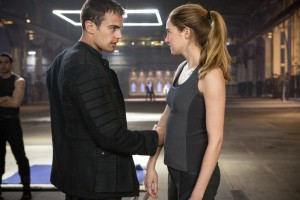
All in all, “Divergent” is not an awful film, despite its critical lashing, but suffers because it found its way to Hollywood too little too late. In the wake of “The Hunger Games,” its dystopian warnings seem less urgent, its scope ultimately familiar, and its production little more than unnecessary – a shame given it is a rather more believable a sci-fi yarn than “The Hunger Games.” Fans of the book series will doubtless flock to this film (evident with the film’s $56M opening weekend), and those who enjoy sci-fi will probably find an enjoyable experience. However, an incredibly chopped off third act, redundant material, and undeveloped characters might annoy those looking for an original movie experience to lift them out of familiar territory.
– by Mark Ziobro
